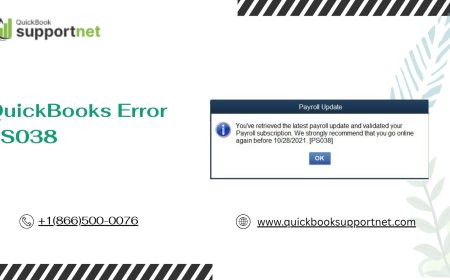Empowering Electrical Infrastructure: BIS for Distribution Transformers

Distribution transformers play a vital role in the final voltage transformation in an electric power distribution system. With increasing demands on power efficiency and safety, regulatory certifications have become essential. One of the most critical certifications in India is the BIS for Distribution Transformers. It ensures that equipment complies with quality, safety, and performance standards as per Indian regulations.
Lets dive deeper into why this certification matters, its relevance for manufacturers, and how experts like consultants can simplify the compliance journey.
Understanding the BIS Certification Landscape for Transformers
The Bureau of Indian Standards (BIS) is the national standards body of India responsible for ensuring the quality of products through certification. For transformers, especially Liquid Immersed Distribution Transformers, BIS certification is mandatory as per various government Quality Control Orders (QCOs).
BIS certification for Liquid Immersed Distribution Transformers is governed under IS 1180 (Part 1):2014, which outlines stringent requirements related to design, safety, energy efficiency, and construction. This standard covers outdoor type, oil-immersed distribution transformers up to and including 2500 kVA, 33 kV class.
Why Certification is Crucial for Liquid Immersed Distribution Transformers
For manufacturers and suppliers, BIS certification for Liquid Immersed Distribution Transformers isnt just about meeting a regulatory checkbox it offers:
-
Credibility and Trust: Certified products are trusted more in government and private tenders.
-
Market Access: Products without certification are not allowed to be sold in India post the QCO notification.
-
Safety and Reliability: Certification ensures that the transformers meet durability and insulation requirements.
The Indian power sector is on a path to modernization and electrification, making quality assurance more important than ever.
Benefits of Having an ISI Mark on Distribution Transformers
An ISI Mark for Liquid Immersed Distribution Transformers indicates conformity with Indian Standards. It provides the following benefits:
-
Improved Consumer Confidence: Buyers and utility companies prefer ISI-marked products.
-
Fewer Rejections in Quality Checks: Certified units meet test standards from day one.
-
Government Project Eligibility: Most public sector projects in India mandate ISI-marked components.
The ISI mark is not just a logo it's a quality assurance guarantee that reflects a company's commitment to excellence.
Step-by-Step BIS Certification Process for Distribution Transformers
Heres how a manufacturer can obtain certification:
-
Application Submission: Manufacturers must apply to BIS with details about the product, testing facilities, and manufacturing process.
-
Sample Testing: BIS may ask for third-party testing or verify test results from recognized labs.
-
Factory Audit: BIS officials inspect the production site to verify manufacturing capabilities and quality control systems.
-
Grant of License: Once BIS is satisfied, it grants the license, allowing the use of the ISI mark on the product.
-
Ongoing Surveillance: BIS conducts regular audits and product tests to maintain compliance.
This rigorous process ensures that only high-quality products get certified.
Role of a BIS Consultant for Liquid Immersed Distribution Transformers
Hiring a BIS Consultant for Liquid Immersed Distribution Transformers can significantly reduce the complexity of the certification process. Their expertise helps in:
-
Document Preparation: Consultants assist in compiling technical documents, test reports, and factory layouts.
-
Pre-Audit Guidance: They help identify weak points and suggest corrective actions before BIS inspection.
-
Test Support: Coordinating with NABL labs for sample testing and interpreting results correctly.
-
Faster Approvals: Avoiding common delays by pre-emptively solving compliance issues.
A reliable consultant becomes your strategic partner in achieving timely certification and market entry.
Choosing the Right ISI Consultant for Liquid Immersed Distribution Transformers
While hiring a consultant, its essential to consider:
-
Experience in Transformer Certification: Domain-specific knowledge is crucial.
-
Track Record: Look at previous certifications handled by the consultant.
-
Network with Test Labs: Quick coordination with recognized labs is a big plus.
-
Updated Knowledge: Regulations evolve, so consultants should stay current with BIS amendments.
A seasoned ISI Consultant for Liquid Immersed Distribution Transformers helps businesses navigate the certification journey efficiently and compliantly.
Key Compliance Areas Under IS 1180:2014 for Distribution Transformers
Here are some critical focus areas for compliance:
-
No-load and Load Losses: Must meet designated energy efficiency levels.
-
Temperature Rise Limits: Ensures safe operation under load.
-
Impedance Voltage: Critical for voltage drop and fault tolerance.
-
Insulation and Dielectric Strength: Determines long-term reliability.
-
Bushings and Core Design: Must meet safety, mechanical, and thermal standards.
Each parameter is tested and verified before the BIS license is granted.
Impact of BIS Certification on Industry Stakeholders
For Manufacturers:
-
Better product value
-
Eligibility for government procurement
-
Streamlined export possibilities
For Consumers:
-
Assurance of safety and quality
-
Long-term performance reliability
-
Reduced risk of fire or breakdown
For Distributors and Traders:
-
Legal compliance
-
Market competitiveness
-
Reduced returns and complaints
Penalties for Non-Compliance with BIS Certification
The Department for Promotion of Industry and Internal Trade (DPIIT) has made it mandatory for manufacturers to obtain BIS certification for specific categories of transformers. Non-compliance may result in:
-
Product recall or ban
-
Financial penalties
-
Blacklisting from tenders
-
Legal action under BIS Act
Therefore, ensuring your transformers are BIS-certified isnt optional its essential.
Future Trends in Transformer Certification
As the Indian power grid moves toward smarter solutions, certification norms are likely to become even more stringent. Emerging trends include:
-
Smart Transformers: BIS may release standards for transformers with IoT-based monitoring.
-
Eco-friendly Fluids: Liquid-immersed units using natural or synthetic esters may be included in future regulations.
-
Digital BIS Portal Integration: More processes are moving online, making tracking and approvals faster.
Staying ahead of compliance changes is critical to maintaining your market position.
Conclusion: Your Path to BIS Compliance Starts Here
EVTL India is one of the leading BIS Consultant in India, helping manufacturers obtain their BIS licences hassle-free. In todays highly competitive and regulated environment, achieving compliance with BIS norms for distribution transformers is a must. Whether you're a local manufacturer, international exporter, or startup entering the energy sector investing in certification ensures long-term success and customer trust.
Engaging with expert consultants and keeping your processes audit-ready can help you not only gain the certification but also maintain it with ease.




























